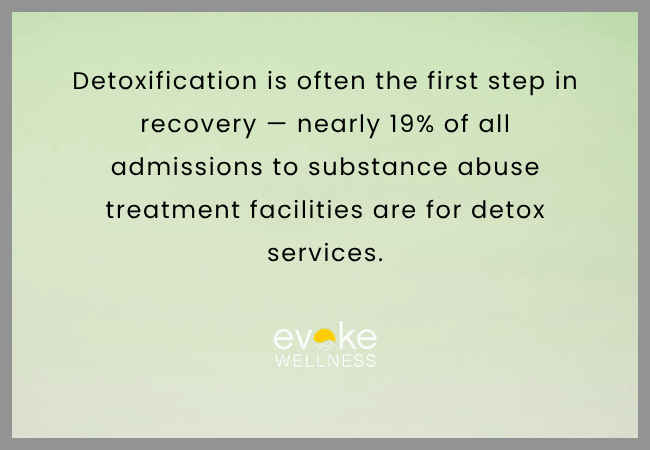The path to recovery often begins with detox—but misinformation about the process can create unnecessary fear and hesitation. Many people envision detox as a harrowing experience filled with unbearable withdrawal symptoms, isolation, and little support. Unfortunately, these myths discourage individuals from seeking the help they desperately need, prolonging their struggle with addiction.
In reality, modern detox centers provide medically supervised, compassionate care designed to minimize discomfort and help individuals stabilize physically and emotionally. Detox is not a punishment or a test of willpower; it’s a clinical process that prepares people for deeper healing. The more we can separate fact from fiction, the more empowered individuals will feel to take that first brave step toward recovery.
This article explores and dismantles common detox myths to help readers understand what really happens inside a detox center—and why it’s often much safer, more manageable, and more hopeful than they expect.
Myth 1: Detox Is Always Painful and Unbearable
A common misconception is that detox must be excruciating. Yes, withdrawal symptoms can be uncomfortable, but with medical support, many of the more severe symptoms can be prevented or eased.
Modern detox facilities are equipped with trained medical teams who closely monitor patients 24/7. Depending on the substance used and the severity of the dependence, medications may be prescribed to reduce anxiety, ease physical discomfort, and stabilize vital signs. Medical staff provide hydration, nutrition, and emotional reassurance throughout the process.
The goal isn’t to “tough it out”—it’s to make the individual as safe and comfortable as possible so they can complete the process and move on to the next phase of care.
Myth 2: Detox Can Be Done Safely at Home
Some people believe they can detox without professional help. While this may seem appealing, especially for those who want privacy, the risks are considerable.
Detoxing from substances like alcohol, opioids, or benzodiazepines can trigger seizures, delirium tremens, heart complications, or suicidal ideation. Without medical support, these symptoms can become life-threatening. Even substances that are perceived as less “serious” can result in unexpected health complications during withdrawal.
Structured programs, such as those in a Residential Treatment Center in Massachusetts, are specifically designed to manage these risks. Medical professionals ensure safety while also supporting emotional regulation, making detox far more manageable and far less dangerous.
Myth 3: Detox Cures Addiction
One of the most damaging myths is the idea that detox alone is enough to overcome addiction. Detox only clears substances from the body—it does not address the psychological, behavioral, or emotional factors behind the addiction.
True recovery requires continued care, such as therapy, relapse prevention planning, life skills training, and treatment for co-occurring mental health conditions. Detox prepares the body and mind for this deeper work, but it is not a cure in itself. People who stop at detox without follow-up care often find themselves relapsing, not because they failed, but because they lacked the tools needed to sustain sobriety.
This is why many people transition from detox into a program like an Intensive Inpatient Program in Massachusetts, where they can receive intensive support, build coping strategies, and begin to heal at the root level.
Myth 4: Detox Centers Are Cold, Sterile, and Isolating
Movies and outdated stories often portray detox centers as depressing or institutional, filled with harsh lighting and a lack of personal care. The reality in most modern facilities is very different.
Today’s detox centers are designed with comfort, safety, and dignity in mind. Many offer private or semi-private rooms, access to outdoor space, nutritious meals, and compassionate staff. People are not left alone; they are guided through each stage of the process with medical and emotional support.
Even facilities that focus on high-end care, such as a Luxury Rehab Center Massachusetts, blend clinical expertise with personalized comfort. Patients often have access to holistic services like yoga, massage, meditation, and art therapy—all within a secure, therapeutic setting.
What Actually Happens in Detox?
Detox typically starts with a full clinical assessment. Medical and behavioral health professionals review the individual’s substance use history, physical health, mental health, and any medications they may be taking. This information is used to create a customized detox plan.
Once admitted, patients are monitored regularly, sometimes every hour, to ensure their safety. Medical interventions such as IV fluids, sleep support, and anti-nausea medications may be used as needed. Staff track vital signs, manage symptoms, and help the individual remain stable and calm.
Some detox programs also begin light therapy work to introduce patients to the broader concept of recovery. Group discussions, psychoeducation sessions, and counseling may be offered to help individuals understand addiction and prepare for long-term treatment. These services are often part of Medical Detox Programs in Massachusetts, which provide both physical and emotional stabilization.
Why Do Detox Myths Persist?
Detox myths often originate from outdated practices, media exaggerations, or negative personal experiences. For example, someone who once tried to quit “cold turkey” at home may associate detox with trauma and share that story with others. Media dramatizations frequently depict the worst-case scenario for dramatic effect.
Another reason myths persist is fear. Addiction thrives on fear and denial, and convincing oneself that detox is too dangerous or painful becomes an easy excuse not to seek help. By addressing these myths with facts, we remove one more barrier standing between people and recovery.
The Psychological Side of Detox
While the physical side of detox gets the most attention, the emotional toll can be equally challenging. Feelings of shame, guilt, anxiety, and depression often surface when substances are removed. This is why emotional support is vital during the detox process.
Therapists and support staff work to reassure individuals that they are not broken or beyond help. Encouraging communication and validating emotions help to reduce the internal chaos that may arise. Detox is often the first time someone confronts their feelings sober in years—and they shouldn’t have to face that alone.
Many patients begin to feel hopeful during detox. Once their body begins to stabilize and the fog lifts, clarity and motivation often increase. This momentum can be critical in propelling them into continued care and reinforcing the belief that recovery is possible.
The Importance of Aftercare
Once detox is complete, the most important next step is transitioning into structured aftercare. Without this continuity, people face a high risk of relapse.
For those completing Drug and Alcohol Detox in Massachusetts, programs like residential rehab, outpatient therapy, or sober living homes offer ongoing accountability and structure. These environments help individuals apply new skills, face life’s challenges without substances, and build community around recovery.
Aftercare isn’t optional—it’s essential. Detox clears the body, but recovery heals the mind and spirit.
Why Choose Us?
At Evoke Wellness at Cohasset, our detox services are designed with one priority: your safety and comfort. We don’t just help you through withdrawal—we help you through the fear that surrounds it. With a dedicated medical team, holistic support options, and a compassionate atmosphere, we provide more than just detox—we provide hope. If you or a loved one is ready to begin this life-changing process, know that the team behind our Medical Detox Programs in Massachusetts is here for you.
Conclusion
Detox is not the terrifying experience many people believe it to be. It’s a medically supported process that serves as the gateway to recovery—not a barrier. Understanding the truth about detox removes the stigma, eases fears, and opens the door for people to get the help they need.
At Evoke Wellness at Cohasset, we’re committed to making your first step in recovery one that’s filled with care, dignity, and support. If you’re ready to begin, call us today at 866-931-6429 and start your healing journey with confidence—backed by the care of a trusted Rehab Center Massachusetts.
Frequently Asked Questions (FAQs)
What is detox, and why is it necessary for recovery?
Detox is the process of clearing harmful substances from the body under medical supervision. It’s the essential first step in recovery that stabilizes your health and prepares you for ongoing treatment.
Is detox painful?
While some discomfort may occur, medically supervised detox significantly reduces pain and complications. Symptoms are closely managed by healthcare professionals.
Can I detox safely at home?
Detoxing at home can be dangerous, especially from substances like alcohol or opioids. Medical detox in a clinical setting ensures safety, comfort, and medical care.
Does detox treat addiction completely?
No, detox only addresses the physical aspect of addiction. Long-term recovery requires therapy and behavioral treatment to address psychological and emotional factors.
How long does detox take?
The detox process usually lasts from 3 to 10 days, depending on the substance used, duration of use, and individual health conditions.





